LGBT Sport
In addition to my research on bullying behaviour, as part of my day job, I am the head of Sport Sciences at Brunel University. No one is more surprised at this than me. However, I have become passionate about the equality agenda in sport and I will be posting resources and information about LGBT sport inclusion on this page.
Physical education, sport and homophobia
Along with Professor Celia Brackenridge and other colleagues, I have been involved in two projects looking at homophobia in sport and physical education. As part of a collection of chapters edited by Professor Cara Aitchison, Celia and I, together with Professor Brendan Gough (Nottingham Trent University) and Dr. Karen Llewellyn wrote a chapter looking at how bullying in schools and, more particualrly, homophobic bullying, drives down participation in physical education. A pre-print copy of this chapter is available here.
Sexual orientation and sport
In 2005, Stonewall published a report called ‘Leagues Behind‘. This study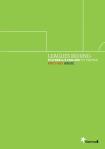 revealed that football fans and those people working within the football industry believed that the sport was anti-LGB and that fans attending matches were likely to have heard homophobic abuse on the terraces. Overall, the report indicated that three quarters of fans believed there were gay players currently in the Premier or Championship league with just over two-thirds believing that there were gay players in Leagues 1 and 2. Interestingly two thirds of the fans sampled said that they would be ‘comfortable’ if a player on their team ‘came out’. Two thirds of fans believed that anti-gay abuse dissuades gay professional players from ‘coming out’, and one quarter believed anti-gay abuse from team mates contributed to this. Over 50 per cent of fans thought the Football Association, the Premier League, the Football League and clubs were not doing enough to tackle anti-gay abuse.
revealed that football fans and those people working within the football industry believed that the sport was anti-LGB and that fans attending matches were likely to have heard homophobic abuse on the terraces. Overall, the report indicated that three quarters of fans believed there were gay players currently in the Premier or Championship league with just over two-thirds believing that there were gay players in Leagues 1 and 2. Interestingly two thirds of the fans sampled said that they would be ‘comfortable’ if a player on their team ‘came out’. Two thirds of fans believed that anti-gay abuse dissuades gay professional players from ‘coming out’, and one quarter believed anti-gay abuse from team mates contributed to this. Over 50 per cent of fans thought the Football Association, the Premier League, the Football League and clubs were not doing enough to tackle anti-gay abuse.
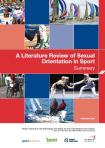 In 2007, a group of researchers were asked to undertake a literature review of sexual orientation in sport on behalf of sportscotland, Sport Northern Ireland, SportEngland and UK Sport. The final report (which can be accessed here) noted the following:
In 2007, a group of researchers were asked to undertake a literature review of sexual orientation in sport on behalf of sportscotland, Sport Northern Ireland, SportEngland and UK Sport. The final report (which can be accessed here) noted the following:
- Research focusing on identity and experience research is the dominant theme in the literature, with considerable additional contributions from the literature on women/femininities and men/masculinities.
- Bisexuality and transsexuality are underrepresented in sports research and policy.
- Whilst there is a basic awareness among stakeholders that there are issues relating to lesbian, gay, bisexual and transsexual (LGBT) people that have to do with participation, discrimination and homophobia in sport, there is a lack of expertise (and in some cases desire) to do what is required to address them.
- Lack of data and evidence means these issues can be ignored or remain hidden.
- Equality issues around sexual orientation and gender identity are still seen differently from comparable issues on race, gender or disability and the underlying prejudices are different.
- Much of the prejudice and negativity around LGBT issues in sport can be traced back to the application of gender stereotypes and perceptions of masculinity and femininity.
- Attitudes within sport both reinforce and are underpinned by wider social attitudes. It would be unfair to judge sports organisations by higher standards than those demonstrated elsewhere.
- Young people are seen as key to effecting change because they often express more enlightened attitudes to diversity than older generations. Sport can be a powerful influence both on young people’s own personal development and on their attitudes to others, so young people’s openness to diversity is likely to continue even after their personal involvement in sport ceases.
- There are many different dimensions to sport: team vs individual, elite vs recreational, health and social benefits of participation, sport’s influence on fans and spectators. Each of these brings about different challenges and opportunities for LGBT inclusion and equality.
- In relation to effective service delivery, there is little evidence of integrated policy or thinking related to sport, health, education and social inclusion. Bringing these elements together more effectively could create a stepchange in some of the issues relating to LGBT and equality, and help to add value to governments’ efforts to work in a more joined-up way across health, sport, education and industry.
- Homophobic discrimination and gender stereotyping are not just damaging to those who may be LGBT but risk affecting performance and participation among far wider groups.
- There is no clear leadership on this issue and even some in government positions appear to be hesitant to take a stand on policy.
Homophobia, transphobia and transgender issues in sport
In 2010, I participated in an invited seminar looking elite child athlete welfare. In the subsequent edited volume (published as an e-book here), I looked particularly at the case of Caster Semenya and the way in which her story unfolded. I argue that sport governing bodies have yet to fully appreciate the implciatons of transgender status, not only in terms of competition, but also in terms of participation in sport.
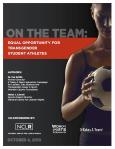 I am however very pleased to read of the publication on the 4th October, 2010, of a report sponsored by the National Center for Lesbian Rights (NCLR) and It takes a Team entitled, On the Team: Equal Opportunities for Transgender Student Athletes. This report argues that school and college athletics need to establish standard policies for transgender student athletes.
I am however very pleased to read of the publication on the 4th October, 2010, of a report sponsored by the National Center for Lesbian Rights (NCLR) and It takes a Team entitled, On the Team: Equal Opportunities for Transgender Student Athletes. This report argues that school and college athletics need to establish standard policies for transgender student athletes.
Challenging Homophobia in Sport Initiative (Australia, 2009)
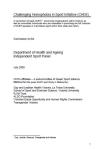 This report calls for”courageous” leadership to combat homophobia in sport, and recognise that LGBTI’s are marginalised within the Australian sport context. Key recommendations include the inclusion of sexual orientation in membership protection policies, education and awareness training within sports to ensure safe and inclusive practices, funding for further research on LGBTI experiences of sport, and a review of best practices in sport.
This report calls for”courageous” leadership to combat homophobia in sport, and recognise that LGBTI’s are marginalised within the Australian sport context. Key recommendations include the inclusion of sexual orientation in membership protection policies, education and awareness training within sports to ensure safe and inclusive practices, funding for further research on LGBTI experiences of sport, and a review of best practices in sport.
Canadian Association for the Advancement of Women and Sport and Physical Activity (CAAWS)
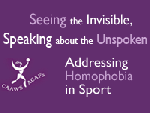 CAAWS prepared a position paper on addressing homophobia in sport. Homophobia – or the fear and hatred of lesbians and gay men – is often an obstacle to participation in sport for all groups: women and men, young and old, homosexual and heterosexual. In particular, CAAWS believes many girls and women shy away from sport out of fear they will be perceived as lesbians. The website includes a series of handouts and resources for tackling homophobia and provides action lists for coaches, athletes, sports organisations and parents.
CAAWS prepared a position paper on addressing homophobia in sport. Homophobia – or the fear and hatred of lesbians and gay men – is often an obstacle to participation in sport for all groups: women and men, young and old, homosexual and heterosexual. In particular, CAAWS believes many girls and women shy away from sport out of fear they will be perceived as lesbians. The website includes a series of handouts and resources for tackling homophobia and provides action lists for coaches, athletes, sports organisations and parents.
Women’s Sports Foundation
 Founded by Billie-Jean King, the Women’s Sports Foundation has produced an entire education toolkit for addressing homophobia in sport entitled, It Takes A Team. The kit includes an introduction to LGBT issues in sport, curriculum and teaching resources, action guides for coaches, athletes, administrators, and parents. There are also climate assessment tools, policy and practice guides, legal resources (for U.S. only), a guide to research and resources and an archive.
Founded by Billie-Jean King, the Women’s Sports Foundation has produced an entire education toolkit for addressing homophobia in sport entitled, It Takes A Team. The kit includes an introduction to LGBT issues in sport, curriculum and teaching resources, action guides for coaches, athletes, administrators, and parents. There are also climate assessment tools, policy and practice guides, legal resources (for U.S. only), a guide to research and resources and an archive.
“Getting Over It”: Homophobia, Sport & University Education (Australia, 2008)
“Getting Over It” is a guide for those wishing to improve their professional practice in sport and exercise related fields (e.g. coaching, teaching, therapy and rehabilitation, counselling and management). It provides a summary of issues to help make teaching and learning more inclusive for LGB students and staff, and includes a discussion of the meaning of a gender/sexuality inclusive curriculum, with advice about skills to deal effectively with incidences of sexist or homophobic behaviour in teaching and learning situations.
practice in sport and exercise related fields (e.g. coaching, teaching, therapy and rehabilitation, counselling and management). It provides a summary of issues to help make teaching and learning more inclusive for LGB students and staff, and includes a discussion of the meaning of a gender/sexuality inclusive curriculum, with advice about skills to deal effectively with incidences of sexist or homophobic behaviour in teaching and learning situations.
Changing the Game:The GLSEN Sports Project (March, 2011)
 Glsen launched their new education and advocacy initiative ‘Changing the Game’ focused on addressing LGBT issues in school-based athletic and physical education programs in the U.S (Kindergarten- 12th Grade). It’s mission is to assist schools indeveloping and enhancing the athletic/physical education of students through the core principles of respect, safety and equal access for all (students, teachers and coaches) irrespective of their sexual orientation or gender identity/expression making sure that all school have a safe, respectful school climate and culture.
Glsen launched their new education and advocacy initiative ‘Changing the Game’ focused on addressing LGBT issues in school-based athletic and physical education programs in the U.S (Kindergarten- 12th Grade). It’s mission is to assist schools indeveloping and enhancing the athletic/physical education of students through the core principles of respect, safety and equal access for all (students, teachers and coaches) irrespective of their sexual orientation or gender identity/expression making sure that all school have a safe, respectful school climate and culture.
Key objectives include (taken from the website):
1) To develop and disseminate high quality, practical, up-to-date and accessible educational resources that:
- Identify how homophobia and transphobia in school-based athletics and physical education classes affect individual students, coaches, teachers as well as sports teams and physical education classes;
- Integrate LGBT concerns with other social justice issues such as race, sex, religion, disability and class and their interaction with homophobia and transphobia in athletics and physical education;
- Provide practical and effective strategies for addressing homophobia and transphobia in school-based athletic and physical education programs;
- Provide sample policies for schools and sports teams toward the goal of creating and maintaining a respectful and safe athletic and physical education climate for LGBT students, teachers and coaches;
2) To serve as a clearinghouse for parents, students, teachers, coaches, school administrators and community-based advocacy groups seeking assistance in addressing LGBT issues in school-based sport and physical education programs by:
- Identifying speakers, trainers and educational programming that address LGBT issues in athletics and physical education to K-12 schools, state and national athletic, physical education, parent, coaches’ and school administrators’ associations.
3) To build collaborative relationships with other organizations that share the core values of safety, respect and equal access for all students in athletics and physical education.
Out in Sport – NUS Campaign (2012)
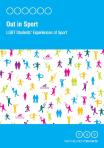 This recent report published by NUS has found that almost half of those at college and university who do not participate in any sport (46.8%) find the culture of sport to be alienating and 41.9% said they had a negative experience at school which has meant that they do not want to get involved. Only a third (34.6%) of lesbian, gay, bisexual and trans (LGBT) students at college or university participate in organised team sport and one in seven (14.3%) said that homophobia, biphobia, or transphobia had put them off participating in sport, while many LGBT students (37.8%) who do take part in sport are not open about their sexuality with teammates or coaches.
This recent report published by NUS has found that almost half of those at college and university who do not participate in any sport (46.8%) find the culture of sport to be alienating and 41.9% said they had a negative experience at school which has meant that they do not want to get involved. Only a third (34.6%) of lesbian, gay, bisexual and trans (LGBT) students at college or university participate in organised team sport and one in seven (14.3%) said that homophobia, biphobia, or transphobia had put them off participating in sport, while many LGBT students (37.8%) who do take part in sport are not open about their sexuality with teammates or coaches.
The most popular suggestion for improving inclusion of LGBT students in sport among those surveyed was to tackle the wider issue of homophobia/biphobia/transphobia in schools (48.3%). The report also recommends that sports teams publicly demonstrate their inclusiveness, and make clear they will not tolerate abuse.
The Out in Sport report can be downloaded here
Trackbacks